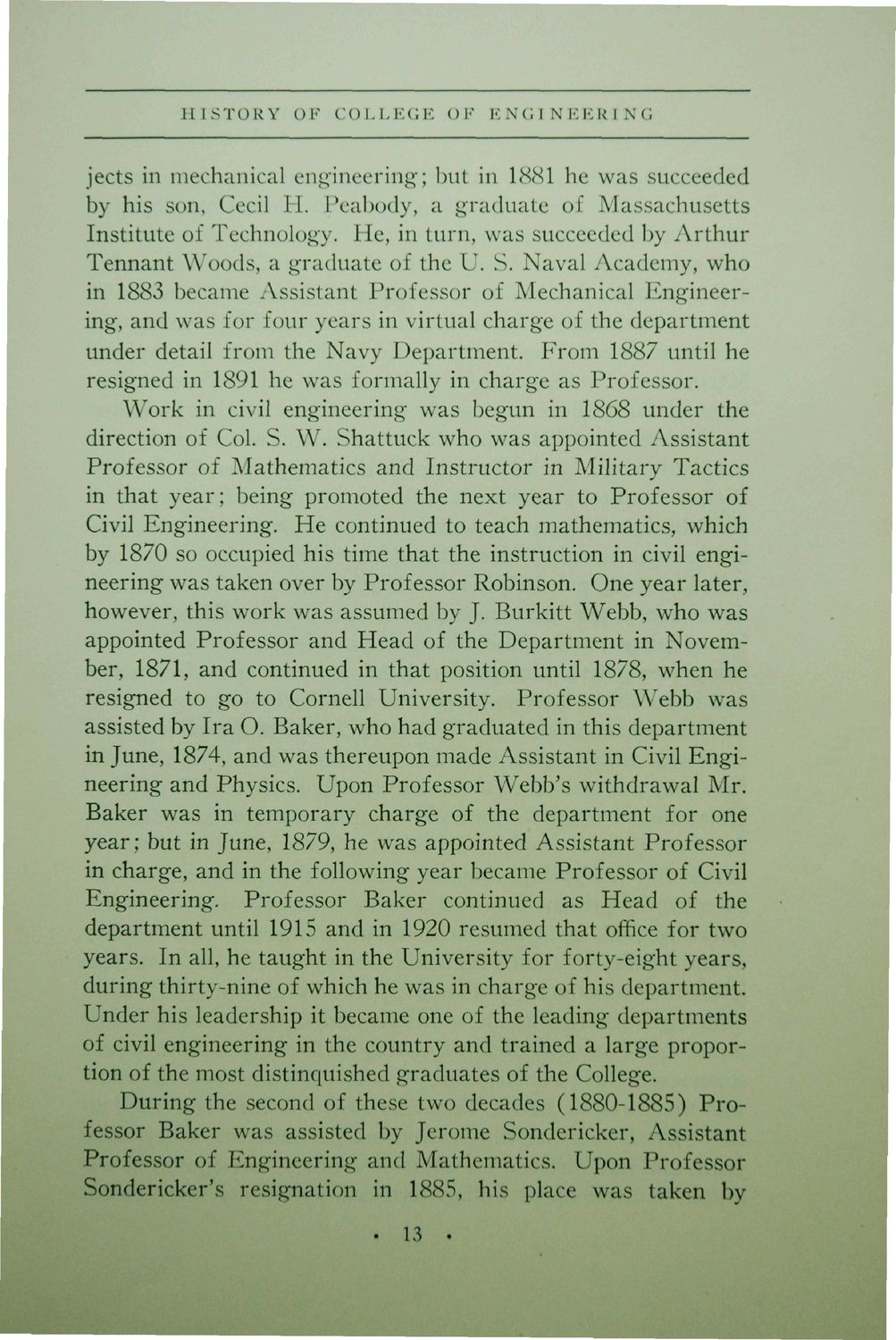| |
| |
Caption: Dedication - Talbot Lab
This is a reduced-resolution page image for fast online browsing.

EXTRACTED TEXT FROM PAGE:
HISTORY OF COLLEGE OF ENGINEERING jects in mechanical engineering; but in 1881 he was succeeded by his son, Cecil H. Peabody, a graduate of Massachusetts Institute of Technology. He, in turn, was succeeded by Arthur Tennant Woods, a graduate of the U. S. Naval Academy, who in 1883 became Assistant Professor of Mechanical Engineering, and was for four years in virtual charge of the department under detail from the Navy Department. From 1887 until he resigned in 1891 he was formally in charge as Professor. Work in civil engineering was begun in 1868 under the direction of Col. S. W. Shattuck who was appointed Assistant Professor of Mathematics and Instructor in Military Tactics in that year; being promoted the next year to Professor of Civil Engineering. He continued to teach mathematics, which by 1870 so occupied his time that the instruction in civil engineering was taken over by Professor Robinson. One year later, however, this work was assumed by J. Burkitt Webb, who was appointed Professor and Head of the Department in November, 1871, and continued in that position until 1878, when he resigned to go to Cornell University. Professor Webb was assisted by Ira O. Baker, who had graduated in this department in June, 1874, and was thereupon made Assistant in Civil Engineering and Physics. Upon Professor Webb's withdrawal Mr. Baker was in temporary charge of the department for one year; but in June, 1879, he was appointed Assistant Professor in charge, and in the following year became Professor of Civil Engineering. Professor Baker continued as Head of the department until 1915 and in 1920 resumed that office for two years. In all, he taught in the University for forty-eight years, during thirty-nine of which he was in charge of his department. Under his leadership it became one of the leading departments of civil engineering in the country and trained a large proportion of the most distinquished graduates of the College. During the second of these two decades (1880-1885) Professor Baker was assisted by Jerome Sondericker, Assistant Professor of Engineering and Mathematics. Upon Professor Sondericker's resignation in 1885, his place was taken by • 13
| |